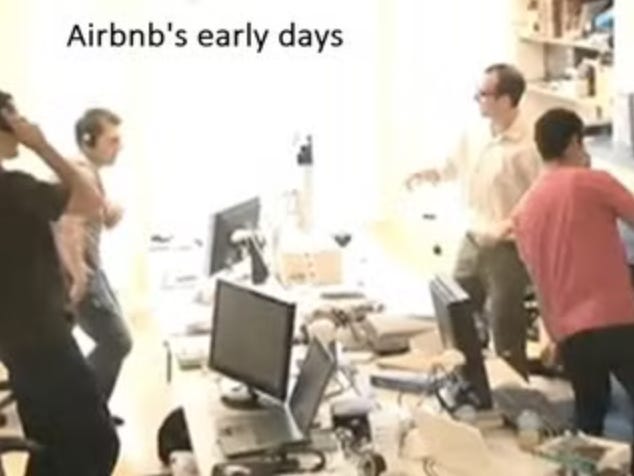If you are from Medan or are of Hokienese decent, you might not be a stranger to this term. Especially if you come from an entrepreneurial background.
This simple saying encapsulates one of the most profound truths about success in the entrepreneurial world: no matter how much preparation or skill you bring to the table, luck often plays the most crucial role in determining whether or not a business takes off.
This may sound frustrating to those who believe in the power of hard work and strategy, but countless stories of success—from global companies to individual investors—highlight this very paradox.
Luck is unpredictable and uncontrollable, yet it tends to favor those who are prepared to take advantage of it.
The Unpredictable Role of Timing and Luck
A classic example of luck in business success is the story of Airbnb. The founders were nearly out of cash, and their platform had seen minimal traction. But when the Democratic National Convention hit Denver in 2008, causing a severe shortage of hotel rooms, their concept of renting out airbeds to travelers suddenly became relevant.
This stroke of luck provided them with the visibility they needed to get their platform off the ground (Source: https://truested.com/story/airbnb)
Another example is Slack, which wasn’t originally intended to be a global workplace communication tool. It was developed as an internal tool for a gaming company that ultimately failed.
However, the Slack team quickly realized that their product had broader appeal, and they pivoted just as the world was shifting toward remote and digital communication. The timing was serendipitous; luck played its part, but their readiness to act is what made Slack a success.(source: https://techcrunch.com/2019/05/30/the-slack-origin-story/)
Our Own “Luck” in the Indonesian Stock Market
Luck doesn’t just apply to global tech giants—it plays a huge role in investments as well. A personal example is our recent investment in the Indonesian stock market during a period of extreme uncertainty. Everyone was shitting on the IDX due to the following negative sentiments:
Weak USD/IDR exchange rate: The Indonesian Rupiah dropped to 16,200 against the USD, creating economic instability.
Morgan Stanley downgrade: Major institutions, like Morgan Stanley, downgraded the Indonesian stock market due to concerns over Prabowo's fiscal policies (source https://www.thejakartapost.com/opinion/2024/06/26/analysis-morgan-stanley-downgrades-ri-stocks-over-prabowos-fiscal-policies.html)
At that moment, it seemed like a terrible time to invest, with so many negative sentiments up in the air.
However, for us, this was a blessing in disguise. Many fundamentally strong companies with All Time Highs in their earnings were being sold as if they were going bankrupt !
The situation was a no brainer for us. We took a leap of faith and invested in these extremely undervalued companies, going against the tide of negative sentiments.
Today, the USD/IDR has stabilized to around 15,000, and our portfolio has grown significantly.
This “lucky” break came because we were prepared to act when the market overreacted to extremely irrational pessimism.
We didn’t predict the exact timing of the market's rebound, but we were ready when the opportunity presented itself.
Luck Favors the Prepared
This is where the phrase "Hoki Te It, Pun Su Te Ji" takes on deeper meaning.
Luck is indeed crucial, but it favors those who have done their homework and are ready to seize opportunities when they arise.
The fact that we could reap some benefits from Indonesian stock market wasn’t solely about luck— it was about recognizing an opportunity in the midst of negative sentiment and having the confidence to act.
Preparation laid the foundation, but luck provided the timing.
The Takeaways
Luck is often the unseen force that drives success in business, but it doesn’t come out of nowhere. The saying “Hoki Te It, Pun Su Te Ji” reminds us that while luck is the most important factor, skill and preparation are what allow you to take advantage of it.
Just like Airbnb’s timing during the 2008 convention or our investment in the Indonesian stock market, luck opened the door—but it was our preparation and readiness that allowed us to walk through it.
Success in both business and investing requires both skill and luck. You can’t predict when that lucky break will come, but you can ensure that when it does, you’re ready to make the most of it.





